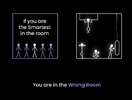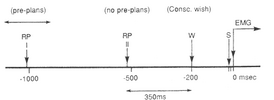T-800
- Joined
- May 16, 2025
- Messages
- 21
- Time Online
- 2h 57m
- Reputation
- 142
I've decided to make my first thread on the expectation and fallacy of free will. I will go over why I personally believe it doesn't exist, and how YOU can directly benefit from knowing my hypothesis. Enjoy, and don't be afraid to comment or rebuttal me!
As conscious beings, we are constantly reminded or informed that we are innately free. That we have the ultimate choice, the choice of life. We choose how we live life; whether by being a drug addict, a school teacher or an eco-terrorist nomad. But, what if I were to tell you that your emotions outride reasoning, or in layman's terms, biology beats logic?
Your choices are shaped by brain chemistry, wiring and past input (biology, biology, past experiences). When you decide on something, your prefrontal cortex and basal ganglia light up before you're aware of it. This indicates that your brain often makes decisions before your conscious mind becomes aware of them.
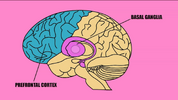
A series of experiments from 1983 investigated the relationship between brain activity and conscious awareness of a decision. This was named the Libet experiment (after Benjamin Libet). This experiment discovered that the readiness potential, or brain activity, starts about 350 milliseconds before a person reports making a conscious decision to act. To put it another way, the brain "decides" before us.
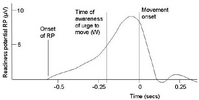
That gut feeling that you always hear about is actually your limbic system processing emotion faster than reason. Your brain is constantly predicting the next moment, even spontaneous decisions come from past neural patterns. Before you even register a potential reaction, your brain has already run the problem/action through its 3 main authorisation checks (brain chemistry, wiring and past input).
So, I hypothesise that if decisions are determined by biology and environment, we do not have true, free will. Only a mimic that is strictly influenced by pre-determined checkpoints.
Your choices are shaped by brain chemistry, wiring and past input (biology, biology, past experiences). When you decide on something, your prefrontal cortex and basal ganglia light up before you're aware of it. This indicates that your brain often makes decisions before your conscious mind becomes aware of them.

A series of experiments from 1983 investigated the relationship between brain activity and conscious awareness of a decision. This was named the Libet experiment (after Benjamin Libet). This experiment discovered that the readiness potential, or brain activity, starts about 350 milliseconds before a person reports making a conscious decision to act. To put it another way, the brain "decides" before us.

That gut feeling that you always hear about is actually your limbic system processing emotion faster than reason. Your brain is constantly predicting the next moment, even spontaneous decisions come from past neural patterns. Before you even register a potential reaction, your brain has already run the problem/action through its 3 main authorisation checks (brain chemistry, wiring and past input).
So, I hypothesise that if decisions are determined by biology and environment, we do not have true, free will. Only a mimic that is strictly influenced by pre-determined checkpoints.
Being capable of controlling the factors that decide our decisions is exactly how we are capable of manipulating success. We control the subconscious mechanisms that tend to make our behaviour by subjectively organising our surroundings, daily habits, and interactions with other people. The consciousness of emotional bias power also encourages us to reflect and slow down, allowing reason to beat out instinct—something we can do through mindfulness, introspection, or the like. In this respect, genuine freedom perhaps does not reside in having spontaneous decisions, but in our capacity to control the circumstances deciding them.
TL;DR You can take advantage subconscious, emotional bias by improving your environment and outlook on life.
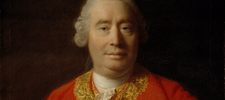
TL;DR You can take advantage subconscious, emotional bias by improving your environment and outlook on life.

Thanks for reading! Rep me!
Hasta la vista, baby.

@Dean @Randomized Shame @johnvee84 @ragnarok787 @Mess
Hasta la vista, baby.

@Dean @Randomized Shame @johnvee84 @ragnarok787 @Mess




